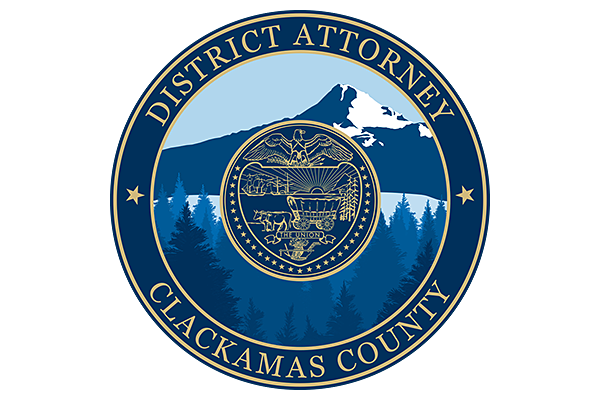 OREGON CITY, Or. – On Sept. 1, Clackamas County will launch its new program aimed at helping people with substance use disorders avoid the criminal justice system and get into treatment.
OREGON CITY, Or. – On Sept. 1, Clackamas County will launch its new program aimed at helping people with substance use disorders avoid the criminal justice system and get into treatment.
The deflection program, said Clackamas County District Attorney John Wentworth, can make a significant, positive impact not only in the lives of people who are or may be experiencing interactions with the criminal justice system, but in local communities, as well.
“We intend for this program to open doors to treatment opportunities that Measure 110 never could,” he said. “I am confident lives will be saved by the work done by our law enforcement and community-based partners, and our goal is to get people into treatment and back into the community.”
Earlier this year, Oregon Governor Tina Kotek signed House Bill 4002, which expanded funding for substance abuse treatment. Starting on Sept. 1, possession of small amounts of hard drugs – such as methamphetamine or heroine – reverts back to being a misdemeanor crime. As part of HB 4002, counties have the ability to coordinate with specific community partners as part of their program, including the district attorney, law enforcement, the community mental health program (CMHP) and a local Behavioral Health Resource Network (BHRN).
While counties across Oregon have created similar deflection programs, when a person with drugs is identified by police, the officer now has the ability to refer the person to deflection program, which will be discussed before or when they appear for community court. Those receiving the referral from law enforcement will not be charged with a crime if they are eligible and willing to participate in the deflection program. The Clackamas County District Attorney’s Office then determines whether or not that person is eligible for the deflection program after reviewing the police report, the person's prior criminal history, and their current involvement with relevant county and non-profit partners.
If a person is eligible for deflection, a program navigator will attempt to contact them before their community court appearance date to offer deflection and, if the offer is accepted, to connect them to the appropriate resources and partners.
If a person is unsuccessful with deflection, or is not offered deflection, they will have an opportunity to enter a conditional discharge process. This will be done through community court. The person's decision to enter a conditional discharge will only be done after consulting with counsel. The conditional discharge process is expected to last 120 days although the court can set a longer term. If successful, the case will be dismissed. The terms of the conditional discharge will be specifically defined in the court's order at time of entry into conditional discharge. Someone who rejects either deflection or conditional discharge will be able to have their case set in Clackamas County Circuit Court for trial or resolution.
Those who fail their conditional discharge process or elect to try their case in circuit court and are convicted will be subject to a formal probation of 18 months monitored by community court and supervised by community corrections.
Clackamas County's Operations Management Group (OMG) oversees the program that is tailored to Clackamas County residents, while also enhancing public safety. This group includes leaders representing law enforcement, community corrections, the Clackamas County Behavioral Health Division, the Clackamas County Health, Housing and Human Services Department, the Clackamas County Community Court defense attorney, court staff, the county's BHRN partner(s) and the other outreach and treatment partners. The group meets periodically to review the program and has access to all of the program's data. The group will help the Clackamas County District Attorney's Office manage the forward path of the program.
 Translate
Translate





